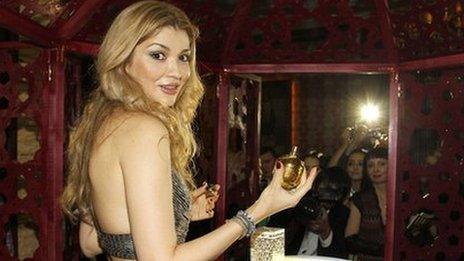Gulnara Karimova: 'Show world my mum is alive,' says son
- Published
Where is Gulnara Karimova?
The son of Gulnara Karimova, the once powerful daughter of the late Uzbek president Islam Karimov, has called for her whereabouts to be made public.
In an exclusive interview with the BBC, Islam Karimov Junior denied recent reports suggesting his mother had died, and accused the Uzbek security services of keeping her in isolation.
Ms Karimova was once seen as a potential successor to her father.
But she disappeared from public view in 2014 amid a damaging family feud.
The name of Ms Karimova, whose ambitions ranged from business and politics to fashion and pop music, has also been linked to corruption allegations surrounding her sizeable commercial interests.
Her son, who lives in London, told BBC Uzbek that Ms Karimova was being held in a "two-to-three room annexe" to her main property in central Tashkent.
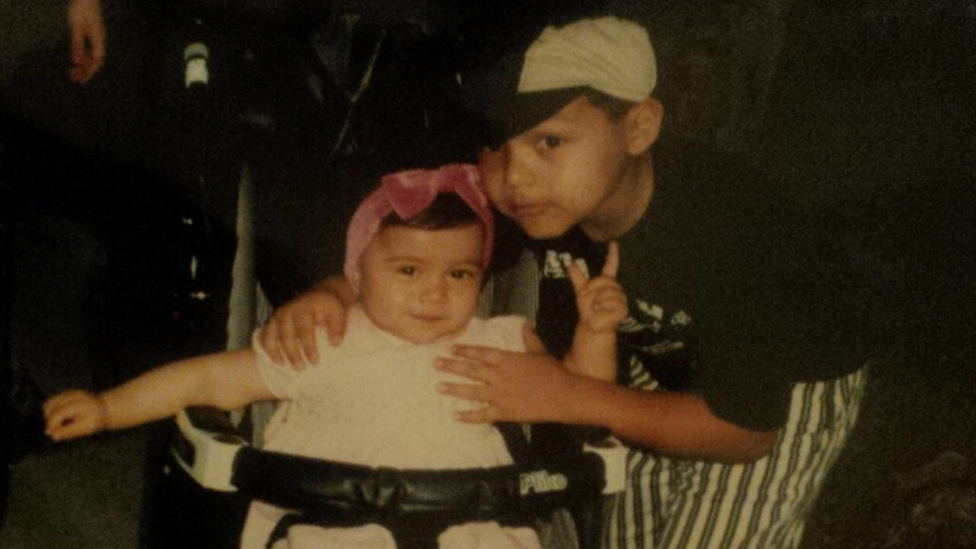
A family photo of Islam Karimov junior with his sister Iman
He said being held incommunicado for such a long time had affected her health.
"To be isolated for two or three years without any even basic human rights that every person deserves on this earth, I'm sure that any person will need some kind of medical attention. But mentally she is sane. The reports she was in a mental hospital are false."
Gulnara Karimova became the international face of Uzbekistan, running a fashion label, jewellery collection and recording pop videos. She held diplomatic posts and controlled significant business interests.
The secret recordings of Gulnara Karimova
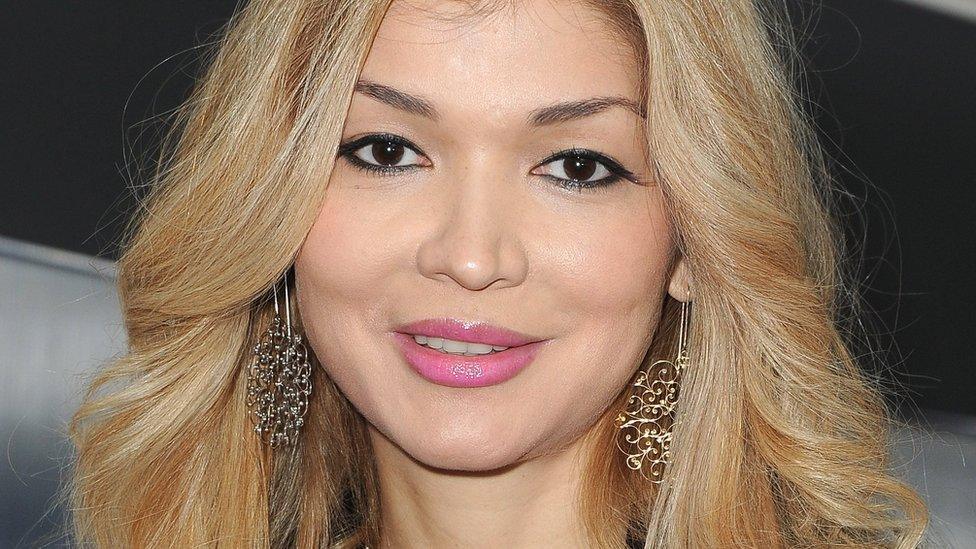
Gulnara Karimova at Paris Fashion Week in 2012
But three years ago her name became embroiled in bribery and money-laundering investigations in Switzerland and Sweden which have since widened to the United States.
Not long after, a deepening rift within the presidential family burst into public view. Ms Karimova's activities were soon reined in, including her outspoken social media accounts, where she began to openly attack the Uzbek security apparatus.
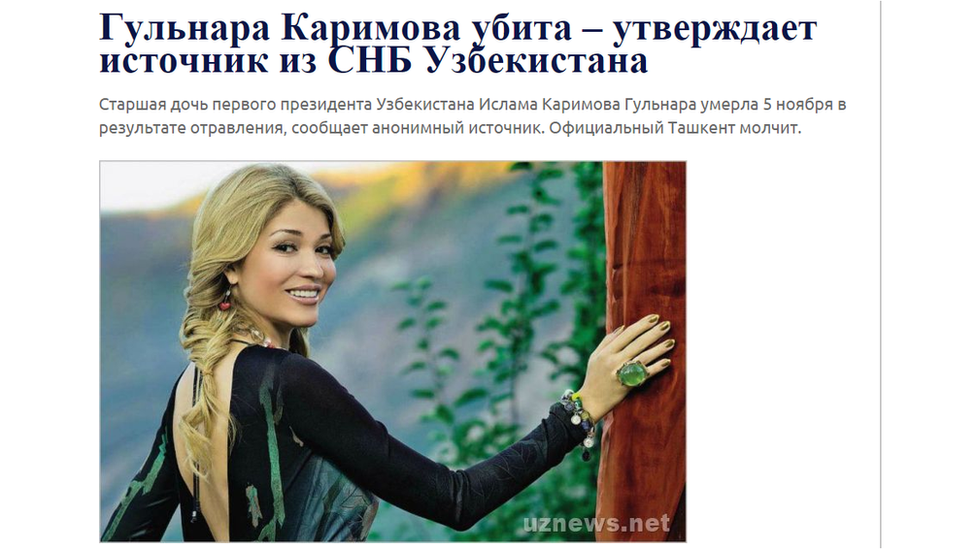
The centre1.com website reported Gulnara Karimova's death on 22 November, quoting an unnamed security source - several international papers picked up the story
Her son says the powerful security service, the SNB, is responsible for locking her up and for refusing access and information about what will happen next.
"I don't understand how in the 21st Century they cannot answer a simple question: Where is Gulnara?" he says. "House arrest, for what? For how long? Under whose supervision? These simple questions have to be answered."
Mr Karimov Junior says he wants his mother's status to be officially recognised.
"Right now there is a rumour that she is dead. But is she? Without it being official, no one can even check these things."
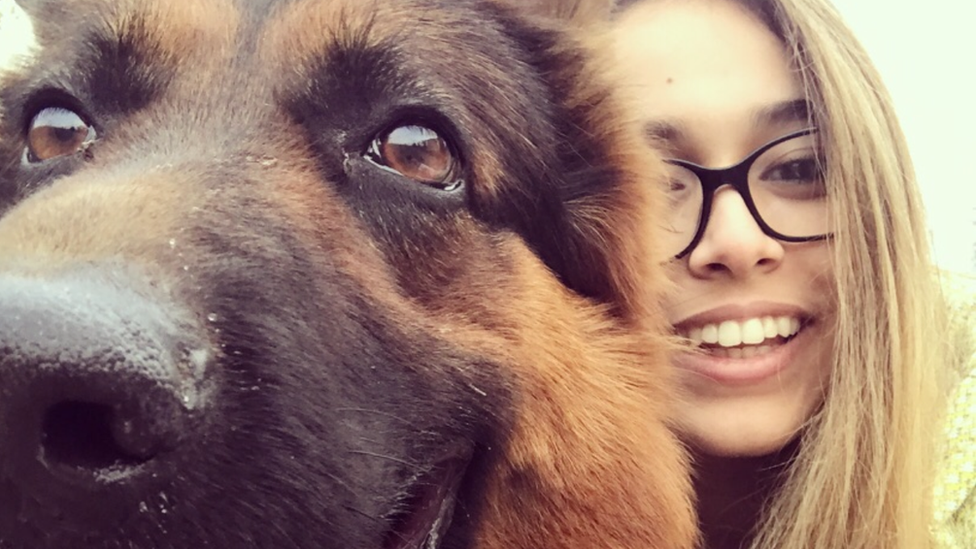
Gulnara Karimova's daughter Iman in a family photo taken earlier this year.
Islam Karimov Junior says he has no direct contact with his mother, but manages to stay in touch via his sister Iman, who still is in Uzbekistan.
When their grandfather, the country's long serving president - whose name Islam Karimov Junior shares - died in September, neither of the siblings or their mother attended the funeral.
Their absence was unusual in a country where family bonds are of great importance. But Islam Karimov Junior says his sister and mother were prevented from going and he himself could not risk the trip back home.
"I wanted to go, but I knew that if I go to the funeral I would not come back. They need all three of us there to limit our activity and our voices," he says.
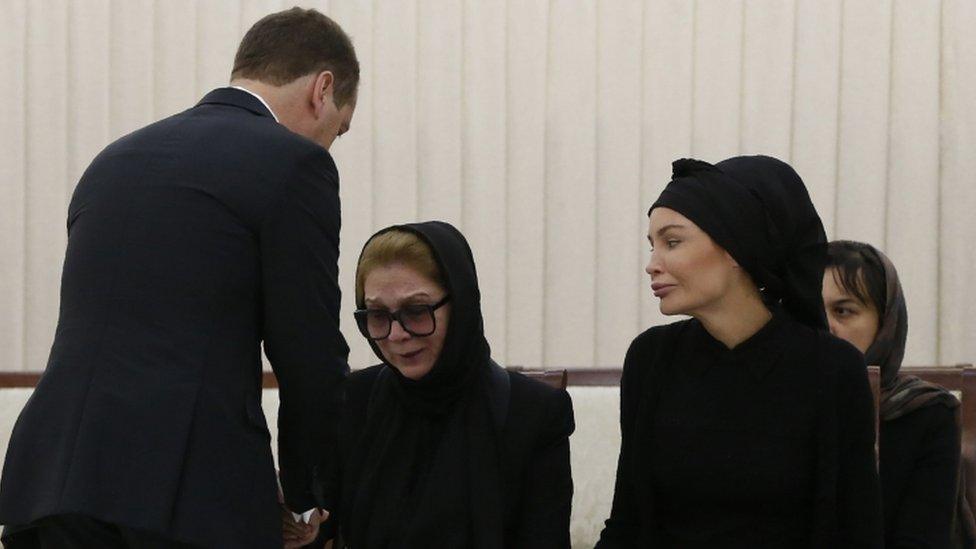
The late President Karimov's wife Tatyana Karimova and second daughter Lola Karimova-Tillyaeva during the funeral
However, he hopes the country's next leader - presidential elections are being held on 4 December - might bring change.
"The current temporary president and prime minister has a unique chance to stop this madness, to end what was caused by the SNB and to legitimise himself, because everyone is watching him, everyone is thinking 'what will he do?'
"I don't think we have done anything bad towards him for him to hate my mother."
So far there are few indications that things in Uzbekistan are going to change after the election which current acting President Shavkat Mirziyoyev is likely to win.
The late Islam Karimov was accused of presiding over an authoritarian state, locking up political opponents and dissident Muslims in jails where torture is rife. Child and forced labour during the annual cotton harvest also drew strong international criticism.
They are practices the young Karimov says must change for the country to modernise.
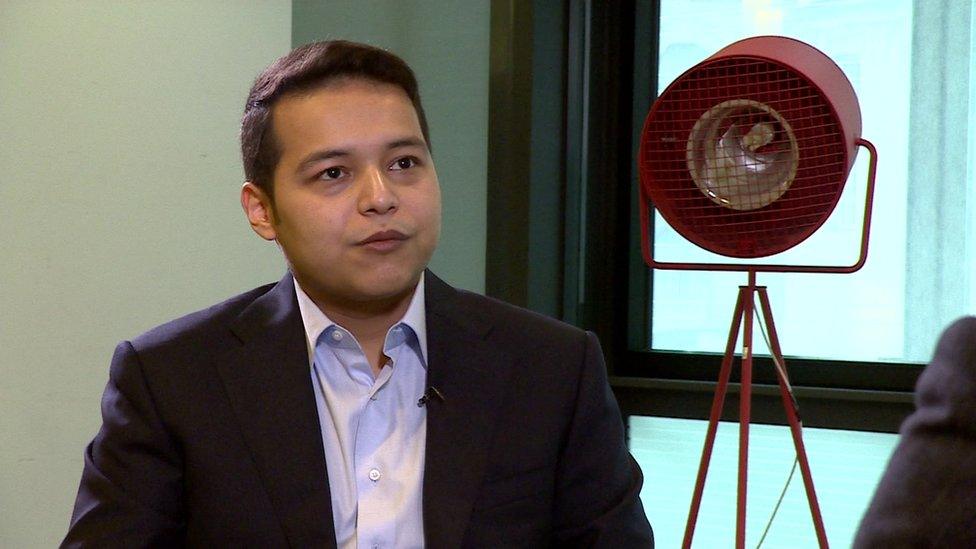
Islam Karimov Junior during his interview with the BBC's Uzbek service
His mother too had begun to speak out against rights abuses in Uzbekistan. But her critics say she only raised her voice when her own star was fading and she became a victim herself.
Her son acknowledges the privileges he enjoyed growing up as part of the presidential family. But he says the last few years have been "hell" as well as "a huge life lesson" that has left him craving normality.
"I just want to see my family, I just want to see my mother, my sister. I want to go to the movies, walk down the street, just want the simplest things."
- Published22 August 2014
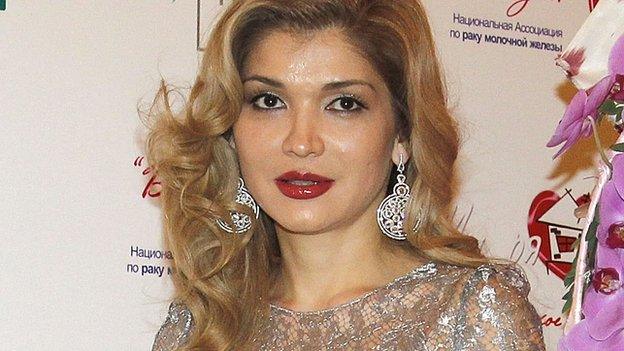
- Published16 January 2014
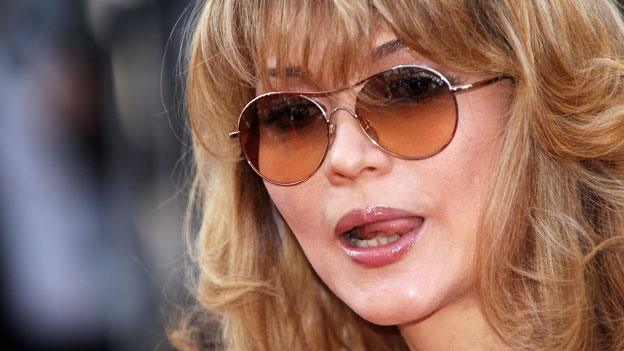
- Published20 November 2013
